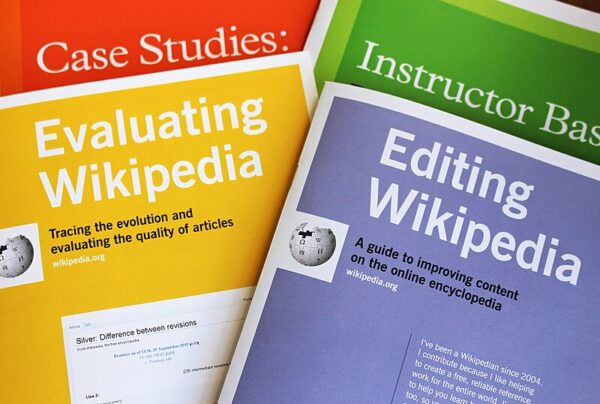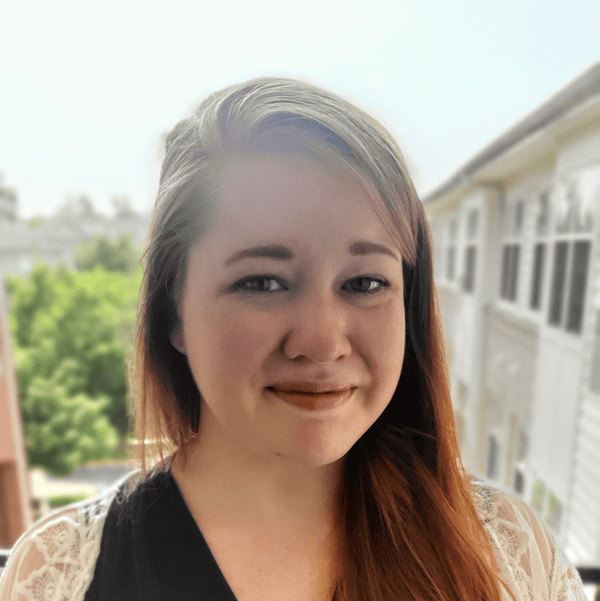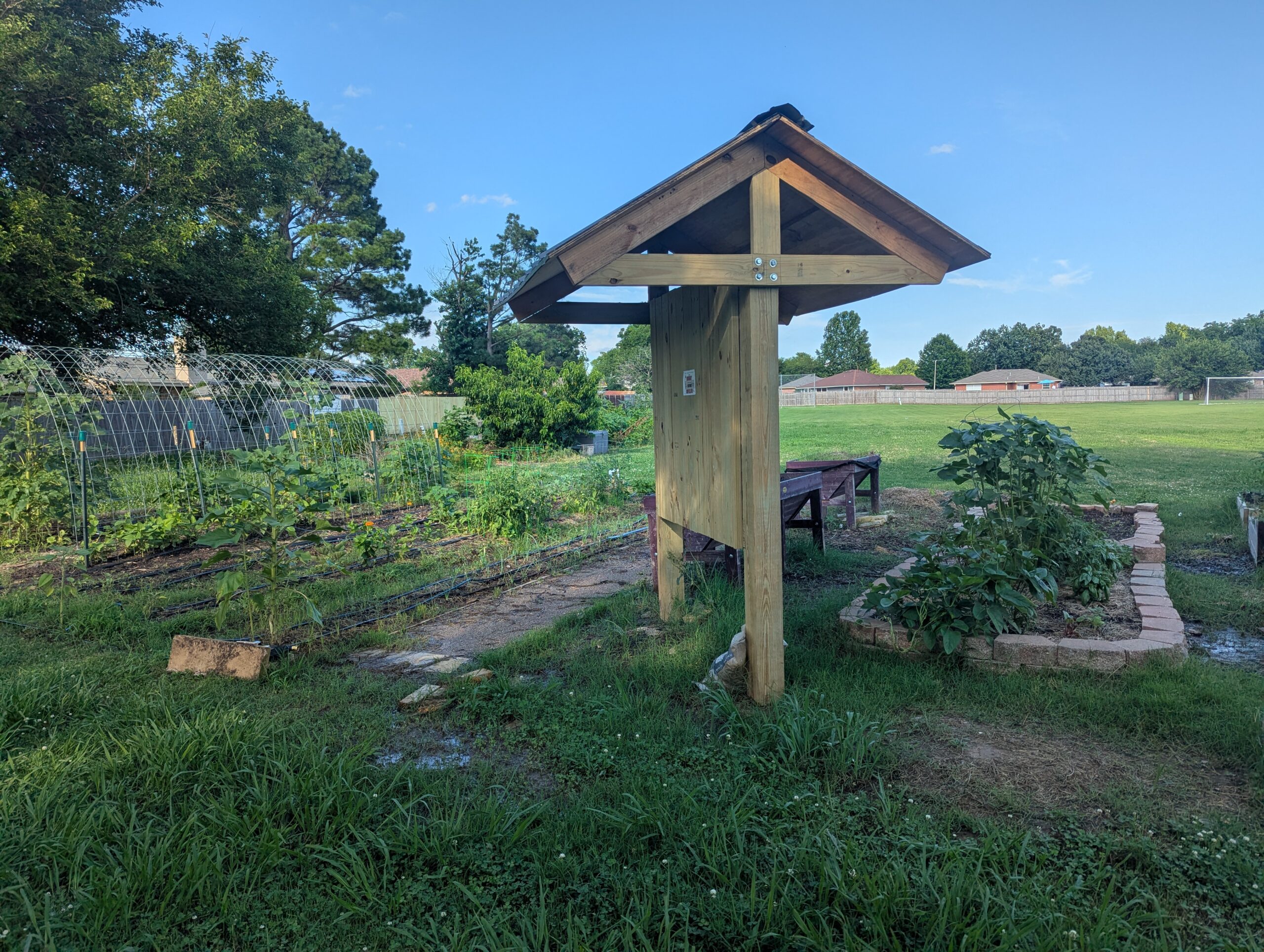On May 23, the AHA partnered with Wiki Education for the AHA Online roundtable The Wikipedia Assignment: How Students Are Making History by Writing about the Past. Featuring historians who have incorporated Wikipedia assignments into their courses and moderated by Helaine Blumenthal (Wiki Education), the panel explored the role Wikipedia can play in tackling many of the challenges facing humanities education today and how educators can integrate this activity into their teaching.

A recent AHA Online webinar introduced explored the role Wikipedia can play in tackling many of the challenges facing humanities education today and how educators can integrate this activity into their teaching. Eryk (Wiki Ed)/Wikimedia Commons/CC BY-SA 4.0
Wiki Education is a small nonprofit with the mission of connecting universities and similar institutions of knowledge with the open knowledge movement, which seeks to make accurate, reliable information freely accessible. Blumenthal, a historian of modern Europe and Jewish history, has been a senior program manager at Wiki Education for almost a decade. She is blind, and her disability informs her commitment to open access. She was joined on the panel by four educators who have been involved with the Wikipedia Student Program, which supports educators who want to incorporate Wikipedia-based assignments into their classes. Since 2010, more than 125,000 students have participated in the program, adding more than 110 million words to Wikipedia.
Educators often get involved with the Wikipedia Student Program for similar reasons. Students are using Wikipedia anyway—whether they are supposed to or not—and these teachers want to help their students to think critically about the information they find there. Ultimately, they have found that Wikipedia assignments offer more than just Wikipedia literacy. The website’s public-facing nature gives students a chance to step back from the argument-based, thesis-driven writing most of their academic work requires to instead practice writing accessibly for a general audience. Wikipedia’s rules about sources—unpublished archival and oral sources are not allowed, since they are not verifiable sources that can be linked in the footnotes—sparks conversations in classrooms about how different sources are used in different contexts. Assignments can also teach students about copyright issues and can introduce students to the idea of “digital citizenship.” The nature of Wikipedia helps students learn about “the importance of revision and collaborative writing and learning,” said Heather J. Sharkey (Univ. of Pennsylvania), as Wikipedia articles are always open to expansion, clarification, and correction, as long as contributors follow the site’s strong guidelines for editing and review.
A major focus of the Wikipedia Student Program is “content gaps,” or information missing from Wikipedia. These gaps often involve women, minoritized people, and perspectives and topics from outside a Western-centric viewpoint. Sharkey’s “galvanizing moment” was learning that Donna Strickland, winner of the 2018 Nobel Prize in Physics, did not have a Wikipedia page at the time she won the award. “Wow, who gets to have a Wikipedia page?” she thought, prompting her engagement with content gaps and equity on the site. A blog post about a “wikithon,” an event held by art history students on her campus to increase the site’s representation of women artists, led her to Wiki Education. She has been using Wikipedia assignments since 2019, helping her students fill in gaps on the site in Middle Eastern and North African history, as well as history local to the University of Pennsylvania. The assignments make students “aware of their own roles in history,” she said.
Students often think it will be difficult to find a topic not already on Wikipedia. But David-James Gonzales (Brigham Young Univ.) noted that they quickly learn how much is not there. His students have contributed 180 articles to Wikipedia, most of which have focused on women, Native Americans, African Americans, Latinos, or other minoritized groups. The articles must include at least 12 peer-reviewed sources, many of which students find through the university library. Public audiences who would likely otherwise not have access to such sources are then able to learn about high-level academic research. In this way, these assignments are valuable in how they make students “producers of knowledge rather than consumers of information,” Gonzales said.
Content gaps are not just about presence and absence. David Sartorius’s students at the University of Maryland learn how “sometimes . . . it’s about the disproportionate weight given to the United States history of those topic.” They get excited about the chance to globalize topics in Caribbean and Latin American history, and often report that the Wikipedia assignment is one of their favorite assignments. The work he and his students do to add well-sourced, reliable information to Wikipedia is a way, he argued, to “use scholarship to close the gap between scholarly conversations and public representations.” As part of the assignment, his students write an argumentative essay about their Wikipedia additions, including critical assessments of relevant historiography and the information that was already on the site.
For Sartorius, the Wikipedia assignment aligns with learning goals that have long been fundamental to history instruction. “Historians have focused on this in different ways over the years, saying students need to learn the historiography of a topic or evaluate primary sources critically, or to contrast accounts and make value judgments,” he said. “We have to widen the frame for a generation that’s up against a fragmented media environment that’s full of misinformation.” Working with Wikipedia helps students understand history as an ongoing conversation.
These assignments also help both instructors and students learn about Wikipedia itself. Shira Klein (Chapman Univ.) and her students now better understand the “vast underbelly” of what goes on behind the scenes of Wikipedia’s public-facing trove of information, including vulnerabilities where information becomes distorted. When students in her course 3,000 Years of Jewish History wanted to edit an article on antisemitism in postwar Poland, she suggested they consider Jan T. Gross’s Neighbors: The Destruction of the Jewish Community in Jedwabne, Poland as a source. She was shocked when her students received pushback from other Wikipedia editors, who claimed the book was unreliable propaganda. Looking deeper into the issue led Klein to uncover a group of editors who have been skewing Holocaust history on Wikipedia to align with narratives supported by right-wing Polish nationalists. Her writing on this issue led to further research on Wikipedia and has helped her understand the website as a kind of massive archive of itself, where “a record of everything that has been done”—edits, additions, deletions—is publicly available if you know where to look.
Like these panelists, most educators who get involved with the Wikipedia Student Program have no prior experience with writing or editing Wikipedia. Wiki Education values these instructors as the subject matter experts who will be able to contribute high-level, accurate information to the website, while students bring much-needed diversity to Wikipedia’s community of contributors, which is made up largely of white, male, western editors.
The Wikipedia Student Program is now accepting submissions from instructors who want to teach with Wikipedia during the summer 2024 or fall 2024 terms. Wiki Education also offers courses for subject matter experts to get involved in editing Wikipedia themselves. They welcome the participation and contributions of historians. AHA members can receive a reserved seat for these courses; log into MY AHA for details.



